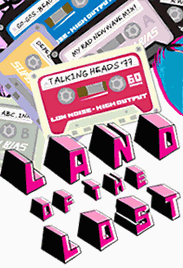 News hit yesterday that local radio legend, and fellow public radio voice, Harrison Ridley Jr. of WRTI-FM passed away from complications due to a major stroke. He was 70.
News hit yesterday that local radio legend, and fellow public radio voice, Harrison Ridley Jr. of WRTI-FM passed away from complications due to a major stroke. He was 70.Harrison Ridley, Jr. hosted The Historical Approach to the Positive Music, heard Sunday nights for almost a quarter-century. He described himself as a musicologist, historian, collector, and communicator. In addition to his 23+ years at WRTI, he's been an instructor at Temple University for more than two decades and has given lectures and workshops at over 30 universities. Harrison has taught classes about the histories of jazz, African-American music, and big bop, as well as courses focusing on jazz figures such as Dizzy Gillespie, Charlie Parker, Duke Ellington, John Coltrane, and Miles Davis.
Harrison is known by many as a walking encyclopedia of jazz. He has made guest appearances on many radio and television shows - including my show Kids Corner back in the day - and has also worked as a consultant for the Library of Congress and as an archivist for the Philadelphia Clef Club of Jazz and the Performing Arts.
Harrison was one of Philadelphia's best known jazz specialists, although he himself did not use the term "jazz," opting instead for phrases such as "this music referred to as jazz," or simply, "the positive music."
The title of Harrison's program - specifically the "historical approach" referred to his technique of producing his weekly show - he would focus in particular on one artist, and use his entire four-hour program to give the listener a sense of that artist's contribution to the tradition. Often he would focus on a specific period in an artist's career, such as early (1920s-1940s) Duke Ellington or Miles Davis recordings from the 1960s.
According to sources, Ridley (an avid record collector and archivist) had amassed over 8,500 LPs, 3,000 78s, 200 45s, 300 CDs, and 6,000 books on African American history and music. He specialized in Duke Ellington albums (of which he had more than 600), and was also an expert on Benny Carter (he had 200 Benny Carter albums).
On a personal note - for me, listening to Harrison's show in the dark of a Sunday night - headphones in place - was like going to school. I always came away with more knowledge, appreciation and understanding of music than I had before the show started.
One moment from his show that has stayed with me decades later, was when Harrison quoted a line from poet Langston Hughes (who Harrison admired) - the line was:
'As we live and learn, dig and be dug in return.'
Harrison - you rocked.
Yes Indeedy.


No comments:
Post a Comment